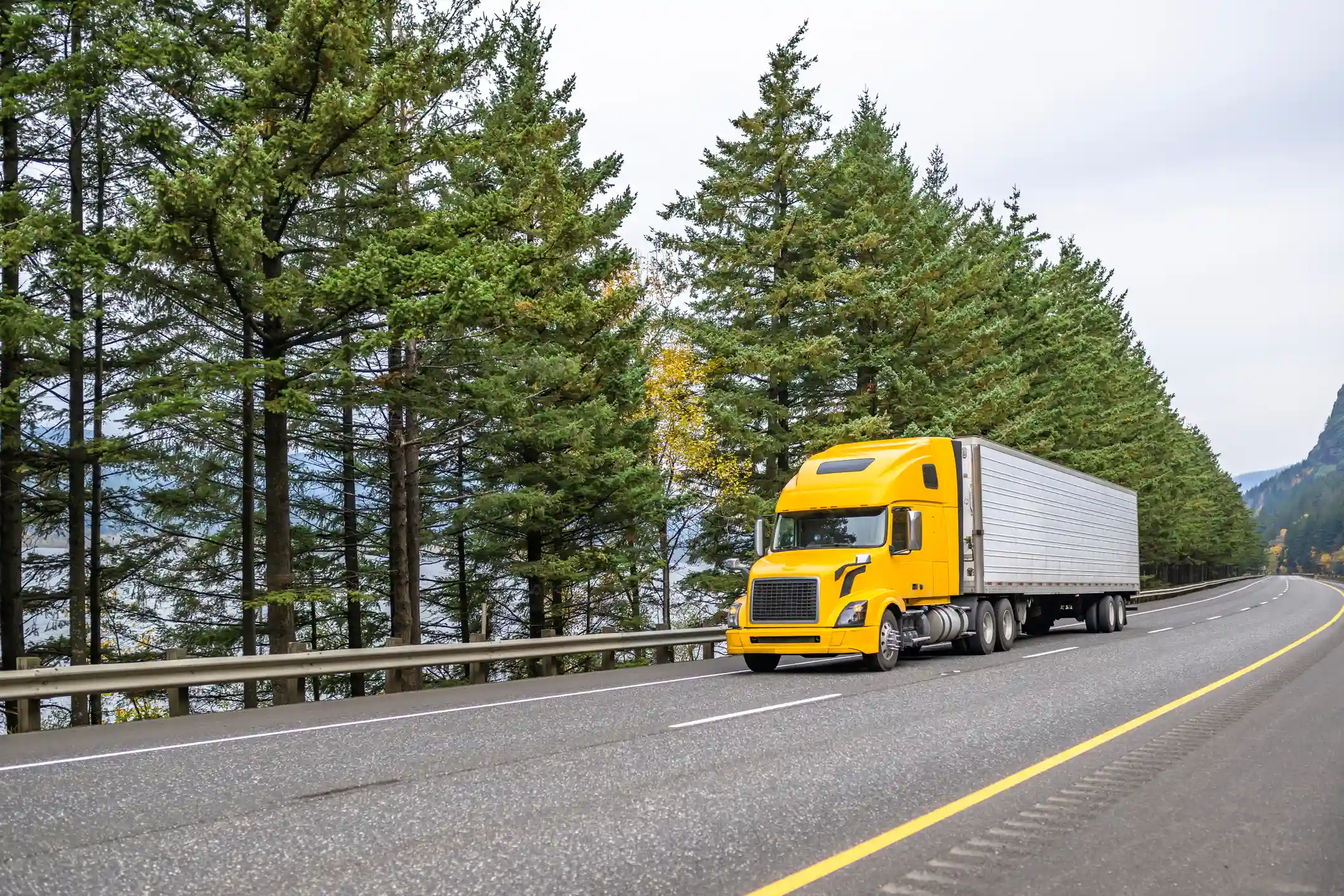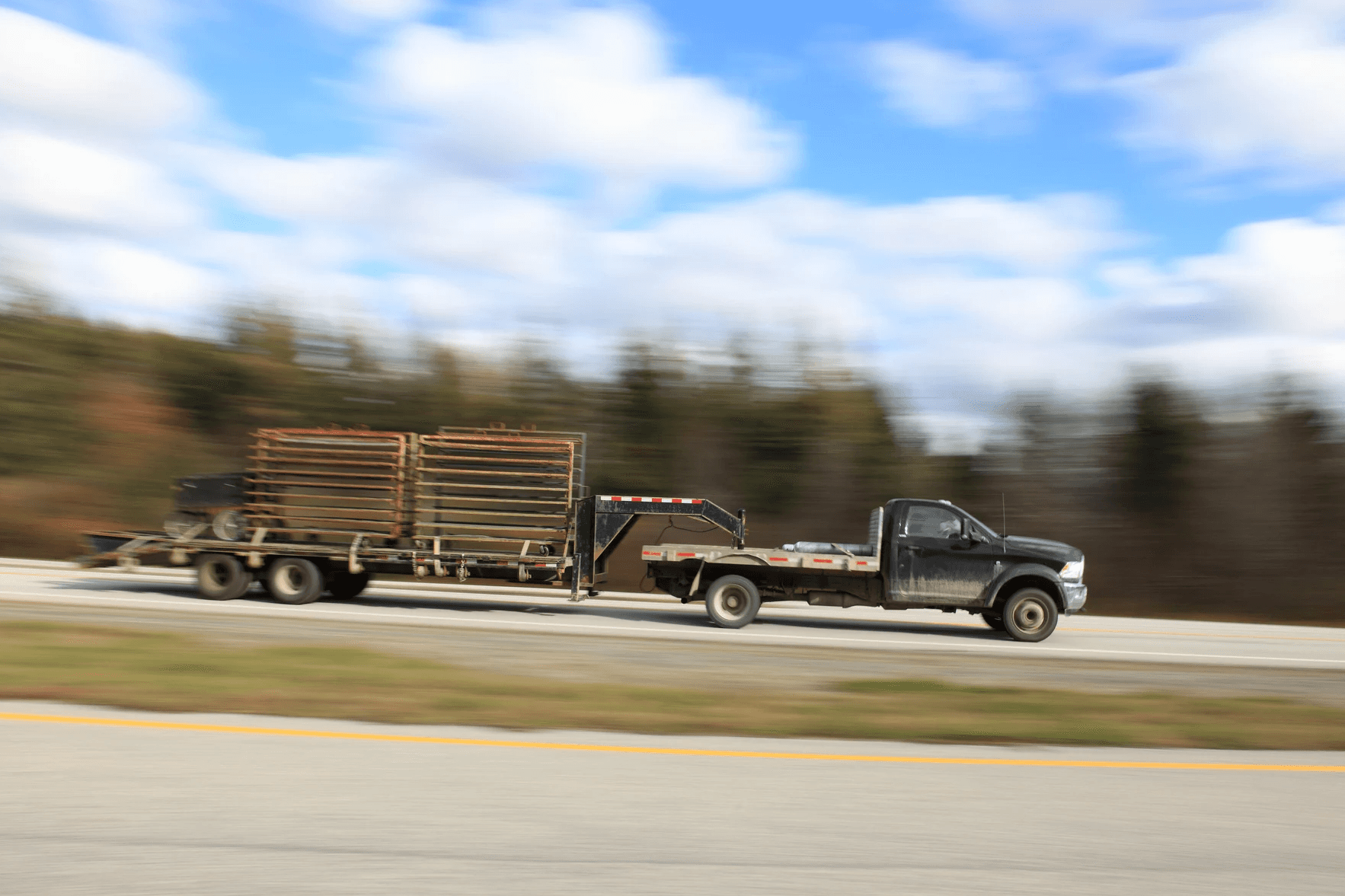Nov 20, 2025
Expeditor Truck Insurance: How Liability Coverage Protects Fast-Moving Freight
Expeditor trucks handle urgent, high-value freight with unique risks. Explore how auto liability, cargo, and physical damage coverage support safer, more reliable expedited operations.


Expedited freight revolves around urgent delivery schedules, specialized cargo, and minimal downtime. These operations rely on commercial vehicles designed to move critical shipments quickly and efficiently.
Understanding what is an expeditor truck—and how it differs from standard equipment—clarifies why the segment requires a strong safety strategy and well-structured insurance protection. With deadlines measured in hours rather than days, reliable coverage becomes central to consistent and secure performance.
Key Types and Characteristics of Expeditor Trucks
Expeditor trucks operate within a specialized segment of commercial transportation, shaped around urgency, direct routes, and cargo sensitivity. Depending on the operation, transportation carriers may use cargo vans, sprinter vans, or straight trucks to fill the gap between standard delivery vans and full-size tractor-trailers. These units typically feature:
Specialized Cargo Areas: Configured to transport sensitive, irregular, or high-value materials that cannot pass through standard distribution channels.
Designed for Direct Routes: Built to minimize transfer points and keep shipments moving continuously from origin to destination.
High-Performance Engines Capable of maintaining speed and continuity under time-critical conditions.
Although the expedited market uses many configurations, most operations rely on three primary categories:
Cargo Vans
Compact units suited for lightweight, time-sensitive shipments such as replacement components, medical items, or urgent small parcels. Their flexibility and lower operating costs make them effective for regional expedited work. For more details on coverage considerations, see: Insurance for Cargo Vans: How Liability Coverage Protects Your Business
Box Trucks
Also known as straight trucks, these units handle heavier or larger expedited loads. They often feature customized cargo boxes for sensitive materials and provide greater capacity while maintaining faster turnaround times than full tractor-trailers. More insight into insurance needs is available at: Box Truck Insurance: Liability Coverage Essentials for Business Owners
Sprinter Vans
A larger and more versatile option designed for high-value or delicate freight. Many models offer expanded cargo space and interior height, making them a core vehicle type for national expedited operations across manufacturing, healthcare, and electronics sectors.
This range of vehicle types allows expedited carriers to match equipment to cargo needs, route distance, and urgency level—factors that also influence how insurers assess liability exposure and structure coverage.
The Risks of Fast-Moving Freight
Expeditor operations face heightened exposure due to frequent stops, tight delivery windows, rapid lane changes, and fatigue-related driver error. In high-pressure environments, even minor disruptions can create significant delays for shippers relying on immediate delivery. All these factors increase risk and make comprehensive coverage planning essential for maintaining stability and uninterrupted operations.
How Liability Coverage Responds
As expeditor operations face heightened exposure from tight delivery windows, direct routing, and time-critical freight, several key coverages work together to protect drivers, vehicles, and third parties:
Auto Liability covers third-party bodily injury and property damage when the insured driver is at fault. This is the foundational coverage required for operating commercial vehicles.
Uninsured/Underinsured Motorist (UM/UIM) coverage supports drivers when another party causes a crash but lacks sufficient insurance.
Personal Injury Protection (PIP), where available, may address certain medical expenses related to covered incidents.
While liability coverage is mandatory, it may not be sufficient for all operations. Expeditor operations often require additional protection:
Cargo Insurance: Addresses loss or damage to freight while in transit. Expedited loads often involve sensitive, specialized, or high-value items that may require stronger protection.
Physical Damage Coverage: Provides protection for the insured vehicle if it is damaged by collision, theft, fire, or other covered events.
When combined, these coverages form a more complete approach to risk management and help mitigate financial losses associated with expedited freight operations.
Safety Culture for High-Speed Operations
Even with efficiency as a priority, maintaining strong safety practices remains essential. Fleet managers who promote a balanced approach, where speed is matched with caution, tend to have fewer incidents. Key practices include:
Route Planning: Helps identify bottlenecks, construction zones, or weather-related conditions
Hours-of-Service Monitoring: Electronic logs or telematics ensure drivers do not exceed safe limits. Additional insights into how technology strengthens operational safety are explored in STAR Mutual’s article, The Role of Technology in Modernizing Trucking Operations.
Routine Inspections: Focusing on brakes, tires, and engine performance helps support safer operations.
Conclusion
Expeditor trucks operate in a segment where speed and precision must coexist. The combination of urgent timelines and specialized freight creates meaningful exposure that comprehensive insurance programs help manage.
Auto Liability supports third-party injury and property damage risks, while cargo and physical damage coverages reinforce operational continuity when sensitive freight or essential equipment is involved. When paired with a strong safety culture, these protections help expedited carriers navigate fast-moving operations with greater confidence.
At STAR Mutual RRG, coverage solutions are shaped around the realities of expedited freight, helping carriers operate confidently as they balance efficiency, safety, and elevated liability demands.
Expedited freight revolves around urgent delivery schedules, specialized cargo, and minimal downtime. These operations rely on commercial vehicles designed to move critical shipments quickly and efficiently.
Understanding what is an expeditor truck—and how it differs from standard equipment—clarifies why the segment requires a strong safety strategy and well-structured insurance protection. With deadlines measured in hours rather than days, reliable coverage becomes central to consistent and secure performance.
Key Types and Characteristics of Expeditor Trucks
Expeditor trucks operate within a specialized segment of commercial transportation, shaped around urgency, direct routes, and cargo sensitivity. Depending on the operation, transportation carriers may use cargo vans, sprinter vans, or straight trucks to fill the gap between standard delivery vans and full-size tractor-trailers. These units typically feature:
Specialized Cargo Areas: Configured to transport sensitive, irregular, or high-value materials that cannot pass through standard distribution channels.
Designed for Direct Routes: Built to minimize transfer points and keep shipments moving continuously from origin to destination.
High-Performance Engines Capable of maintaining speed and continuity under time-critical conditions.
Although the expedited market uses many configurations, most operations rely on three primary categories:
Cargo Vans
Compact units suited for lightweight, time-sensitive shipments such as replacement components, medical items, or urgent small parcels. Their flexibility and lower operating costs make them effective for regional expedited work. For more details on coverage considerations, see: Insurance for Cargo Vans: How Liability Coverage Protects Your Business
Box Trucks
Also known as straight trucks, these units handle heavier or larger expedited loads. They often feature customized cargo boxes for sensitive materials and provide greater capacity while maintaining faster turnaround times than full tractor-trailers. More insight into insurance needs is available at: Box Truck Insurance: Liability Coverage Essentials for Business Owners
Sprinter Vans
A larger and more versatile option designed for high-value or delicate freight. Many models offer expanded cargo space and interior height, making them a core vehicle type for national expedited operations across manufacturing, healthcare, and electronics sectors.
This range of vehicle types allows expedited carriers to match equipment to cargo needs, route distance, and urgency level—factors that also influence how insurers assess liability exposure and structure coverage.
The Risks of Fast-Moving Freight
Expeditor operations face heightened exposure due to frequent stops, tight delivery windows, rapid lane changes, and fatigue-related driver error. In high-pressure environments, even minor disruptions can create significant delays for shippers relying on immediate delivery. All these factors increase risk and make comprehensive coverage planning essential for maintaining stability and uninterrupted operations.
How Liability Coverage Responds
As expeditor operations face heightened exposure from tight delivery windows, direct routing, and time-critical freight, several key coverages work together to protect drivers, vehicles, and third parties:
Auto Liability covers third-party bodily injury and property damage when the insured driver is at fault. This is the foundational coverage required for operating commercial vehicles.
Uninsured/Underinsured Motorist (UM/UIM) coverage supports drivers when another party causes a crash but lacks sufficient insurance.
Personal Injury Protection (PIP), where available, may address certain medical expenses related to covered incidents.
While liability coverage is mandatory, it may not be sufficient for all operations. Expeditor operations often require additional protection:
Cargo Insurance: Addresses loss or damage to freight while in transit. Expedited loads often involve sensitive, specialized, or high-value items that may require stronger protection.
Physical Damage Coverage: Provides protection for the insured vehicle if it is damaged by collision, theft, fire, or other covered events.
When combined, these coverages form a more complete approach to risk management and help mitigate financial losses associated with expedited freight operations.
Safety Culture for High-Speed Operations
Even with efficiency as a priority, maintaining strong safety practices remains essential. Fleet managers who promote a balanced approach, where speed is matched with caution, tend to have fewer incidents. Key practices include:
Route Planning: Helps identify bottlenecks, construction zones, or weather-related conditions
Hours-of-Service Monitoring: Electronic logs or telematics ensure drivers do not exceed safe limits. Additional insights into how technology strengthens operational safety are explored in STAR Mutual’s article, The Role of Technology in Modernizing Trucking Operations.
Routine Inspections: Focusing on brakes, tires, and engine performance helps support safer operations.
Conclusion
Expeditor trucks operate in a segment where speed and precision must coexist. The combination of urgent timelines and specialized freight creates meaningful exposure that comprehensive insurance programs help manage.
Auto Liability supports third-party injury and property damage risks, while cargo and physical damage coverages reinforce operational continuity when sensitive freight or essential equipment is involved. When paired with a strong safety culture, these protections help expedited carriers navigate fast-moving operations with greater confidence.
At STAR Mutual RRG, coverage solutions are shaped around the realities of expedited freight, helping carriers operate confidently as they balance efficiency, safety, and elevated liability demands.
Contents
Stay up-to-date
Related Post
Become a STAR Agent
Become a STAR Agent
Get access to unparalleled technology-based service to quote and bind your clients in minutes.
Get appointed
Get appointed
STAR Mutual Risk Retention Group (“STAR”) offers commercial auto liability insurance to the members of Reliable Transportation Association (“RTA”), looking for accessible and reliable coverage.
Get in Touch
Contact
855-5MY-STAR (855-569-7827)
STAR Mutual RRG
PO Box 51414, Philadelphia
PA 19115
General inquiries:
Agent inquiries:
Claim inquiries:
The information presented on this website is for general informational purposes only and does not constitute legal, regulatory, or business advice. Readers are encouraged to consult with qualified legal or insurance professionals regarding questions specific to their circumstances.
The content is provided for general informational purposes only and does not constitute an offer to sell, or a solicitation of an offer to buy, insurance in any jurisdiction where STAR Mutual RRG is not licensed or registered. Any description of coverage is general and subject to the terms, conditions, and exclusions of the actual policy.
STAR Mutual Risk Retention Group (“STAR”) offers commercial auto liability insurance to the members of Reliable Transportation Association (“RTA”), looking for accessible and reliable coverage.
Get in Touch
Contact
855-5MY-STAR (855-569-7827)
STAR Mutual RRG
PO Box 51414, Philadelphia
PA 19115
General inquiries:
Agent inquiries:
Claim inquiries:
The information presented on this website is for general informational purposes only and does not constitute legal, regulatory, or business advice. Readers are encouraged to consult with qualified legal or insurance professionals regarding questions specific to their circumstances.
The content is provided for general informational purposes only and does not constitute an offer to sell, or a solicitation of an offer to buy, insurance in any jurisdiction where STAR Mutual RRG is not licensed or registered. Any description of coverage is general and subject to the terms, conditions, and exclusions of the actual policy.
STAR Mutual Risk Retention Group (“STAR”) offers commercial auto liability insurance to the members of Reliable Transportation Association (“RTA”), looking for accessible and reliable coverage.
Get in Touch
Contact
855-5MY-STAR (855-569-7827)
STAR Mutual RRG
PO Box 51414, Philadelphia
PA 19115
General inquiries:
Agent inquiries:
Claim inquiries:
The information presented on this website is for general informational purposes only and does not constitute legal, regulatory, or business advice. Readers are encouraged to consult with qualified legal or insurance professionals regarding questions specific to their circumstances.
The content is provided for general informational purposes only and does not constitute an offer to sell, or a solicitation of an offer to buy, insurance in any jurisdiction where STAR Mutual RRG is not licensed or registered. Any description of coverage is general and subject to the terms, conditions, and exclusions of the actual policy.
© 2026 - STAR Mutual RRG. All rights reserved.




